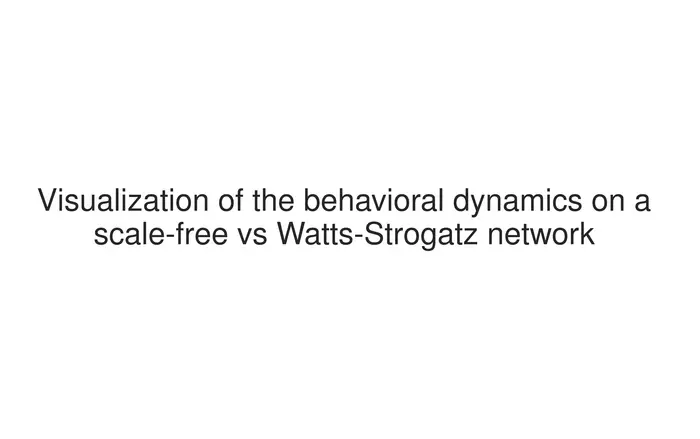[Vienna, May 23 2024] – Sociodiversity – the diversity of human opinions, ideas, and behaviors – is a driving force behind many, overall quite positive developments. “When different people come together, given they have no bad intentions, new ideas emerge, which can foster innovation and contribute to economic prosperity,” explains Dirk Helbing, who is an external faculty member at the Complexity Science Hub and a professor at ETH Zurich. Therefore, maintaining or even promoting sociodiversity plays a significant role. But how can this be achieved?

Credit: Andrea Musso and Dirk Helbing
[Vienna, May 23 2024] – Sociodiversity – the diversity of human opinions, ideas, and behaviors – is a driving force behind many, overall quite positive developments. “When different people come together, given they have no bad intentions, new ideas emerge, which can foster innovation and contribute to economic prosperity,” explains Dirk Helbing, who is an external faculty member at the Complexity Science Hub and a professor at ETH Zurich. Therefore, maintaining or even promoting sociodiversity plays a significant role. But how can this be achieved?
In a study recently published in the Journal of the Royal Society Open Science, Helbing and his colleague found evidence that sociodiversity is lower in centralized social networks, where a few key figures are connected with a lot of people.
Rich get richer
In reality, networks are highly centralized, especially on platforms like Instagram and X, where it is possible to have a large following and where some celebrities have many followers, according to the researchers. Most people in these networks have comparatively few followers, while a select few command substantial numbers.
“This is further reinforced by the fact that people who already have many followers are more visible and quickly gain even more followers,” says Andrea Musso from CSH and ETH. This so-called Matthew effect – also known as “rich-get-richer effect” – increases centralization in the network. In turn, centralization destroys the niches protecting minority opinions. Accordingly, centralization reduces sociodiversity, finds the study.
Niches for minority opinions
“In centralized social networks, minority opinions are easily crowded out by majority opinions. This can sometimes mean that valuable ideas are lost, while mainstream takes over. That, however, is no guarantee for good solutions,” explains Helbing. “In fact, social networks should offer safe spaces, where new ideas can develop without having to enter competition with the mainstream right away.”
“When people are part of a group that shares their beliefs, new ideas can survive for a longer time. Otherwise, it is likely that they end up conforming with the majority. Then, however, innovation doesn’t have a chance,” states Musso. “Importantly, such group support depends on a person’s social network rather than on how widely the idea is accepted overall.”
“Networks that promote sociodiversity have structural features that protect minority opinions,” Helbing concludes.
Unfollowing VIPs
“So, if we want to promote sociodiversity, we should decentralize social networks,” suggests Musso. Take, for instance, social networking platforms such as Meta or X. “It turns out that a simple action, such as unfollowing a few VIPs, meaning some influential people with a lot of followers, can help to promote sociodiversity,” explains Helbing. Over time, this can lead to a richer range of ideas, more innovation, economic prosperity, resilience against societal disruptions, and collective intelligence.
Synthetic and real networks
For their study, the researchers created a new method to understand a network’s ability to foster sociodiversity, i.e. to grasp how good a network is at providing space for minority opinions. They validated the method by using a simple model of how opinions change: people can either take over the opinion of a network neighbor (imitate) or invent a new opinion (innovate).
The study found that different networks may display radically different levels of socio-diversity, even when the rates of imitation and innovation are the same. Importantly, their novel method can predict these differences well.
First, the researchers tested the method’s predictive power on synthetic networks – networks generated through models. “Synthetic networks offer the advantage that we can change relevant parameters as we like. For instance, we can create heavily centralized networks in the computer by connecting most elements with a select few ‘central’ elements. Alternatively, we can decentralize the network by interconnecting its elements randomly,” explains Musso. Subsequently, the researchers evaluated their method across more than a hundred real social networks, drawn from platforms like Meta or X.
Important in many areas
“The results of this study have important implications for how opinion diversity can be sustained or even increased,” explains Helbing.
The authors emphasize that opinion formation is indeed not the only example, where the behavior of a system depends on the network structure. The occurrence of harmful cascading effects, the spread of diseases, the efficiency of traffic patterns and their emission levels, the effectiveness of disaster response operations, and the emergence of cooperation are all examples, where the outcome is largely determined by the interaction network.
“These dependencies are often counter-intuitive”, says Helbing. “This makes network theory and the science of complex dynamical systems such an exciting research area.”
About CSH
The Complexity Science Hub (CSH) is Europe’s research center for the study of complex systems. We derive meaning from data from a range of disciplines – economics, medicine, ecology, and the social sciences – as a basis for actionable solutions for a better world. Established in 2015, we have grown to over 70 researchers, driven by the increasing demand to gain a genuine understanding of the networks that underlie society, from healthcare to supply chains. Through our complexity science approaches linking physics, mathematics, and computational modeling with data and network science, we develop the capacity to address today’s and tomorrow’s challenges.
Method of Research
Computational simulation/modeling
Subject of Research
People
Article Title
How networks shape diversity for better or worse
Article Publication Date
22-May-2024
COI Statement
The authors declare no competing interests.



